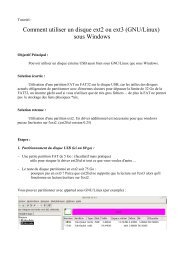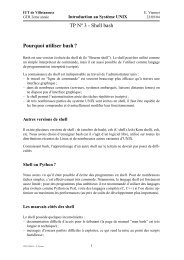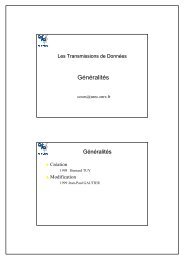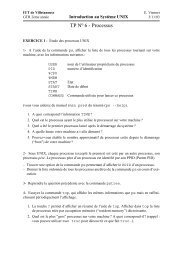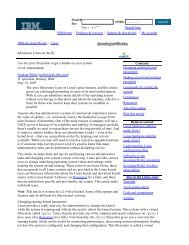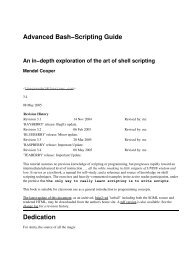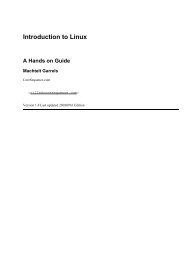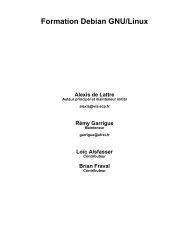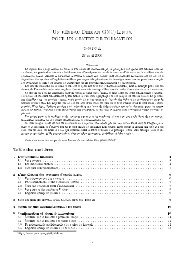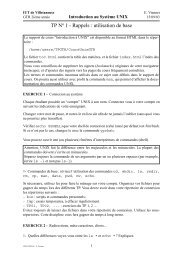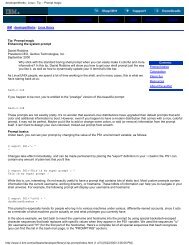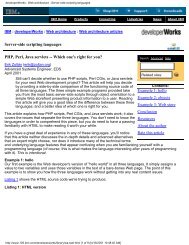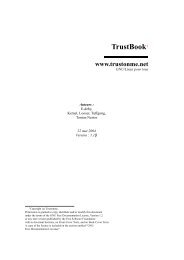Tcl/Tk quick start - Free
Tcl/Tk quick start - Free
Tcl/Tk quick start - Free
Create successful ePaper yourself
Turn your PDF publications into a flip-book with our unique Google optimized e-Paper software.
Presented by developerWorks, your source for great tutorials<br />
ibm.com/developerWorks<br />
construct. As the arguments are processed (Note: improper input terminates the script, since<br />
we haven't implemented an error catch), the while loop processes input by calling a<br />
procedure for each line, and incrementing a line counter. The code fragment ends by<br />
returning the count of lines processed.<br />
...<br />
#<br />
# parse command line switches<br />
set Optimize 0<br />
set Verbose 0<br />
foreach Arg $argv {<br />
switch -glob -- $Arg {<br />
-o* {set Optimize 1}<br />
-v* {set Verbose 1}<br />
default {<br />
error "Unknown $Arg"<br />
}<br />
}<br />
}<br />
set LineCount 0<br />
while {[gets stdin Line] >= 0} {<br />
# to confuse Vanna White...<br />
Remove_Vowels $Line \<br />
$Optimize $Verbose<br />
incr LineCount<br />
}<br />
return LineCount<br />
...<br />
<strong>Tcl</strong> strings and pattern matching<br />
Strings are the fundamental data type in <strong>Tcl</strong>. The string command is really a variety of<br />
commands, gathered under one umbrella. In use, string reads much like the application of<br />
specific object methods from OOP programming, as you can see in the example below.<br />
~/tcltk$ tclsh<br />
% set Phrase "hello, world!"<br />
hello, world!<br />
% string toupper $Phrase<br />
HELLO, WORLD!<br />
% string totitle $Phrase<br />
Hello, world!<br />
% string match ello $Phrase<br />
0<br />
% string match *ello* $Phrase<br />
1<br />
% string length $Phrase<br />
14<br />
% append Phrase "Nice day, eh?"<br />
hello, world!<br />
Nice day, eh?<br />
% string toupper $Phrase<br />
HELLO, WORLD!<br />
NICE DAY, EH?<br />
% string wordend $Phrase 7<br />
12<br />
The informational string commands are length and bytelength (which can differ, depending<br />
<strong>Tcl</strong>/<strong>Tk</strong> <strong>quick</strong> <strong>start</strong> Page 8 of 29



